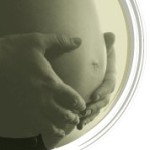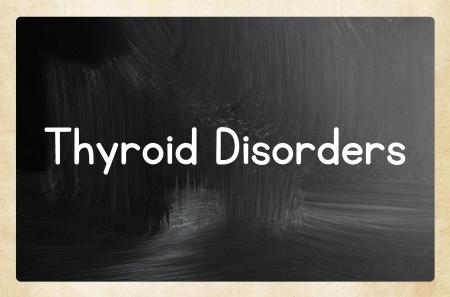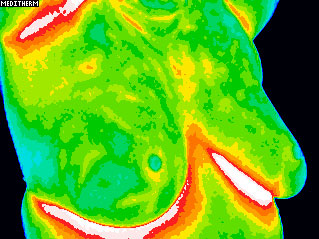 The following is an excerpt from the “Challenges to Pregnancy Chapter” in my book, Your Fertility Program.
The following is an excerpt from the “Challenges to Pregnancy Chapter” in my book, Your Fertility Program.
Are you worried about your thyroid?
Are you concerned that it may impact your fertility?
Read on for more information about this common problem.
From Your Fertility Program:
Thyroid Imbalances
So far we’ve talked about the pituitary, ovaries, fallopian tubes, cervix and of course the UTERUS in regards to fertility, but what about that unsung hero, the thy- roid gland? The thyroid gland sits in the front of your throat. It controls your whole body’s metabolism—the metabolic activity of EVERY CELL! Because of this, thyroid disease affects every organ in the body, including reproductive organs.
Like the ovaries, the thyroid is controlled by the pituitary and the hypothalamus. When levels of thyroid hormone in the body drop, the pituitary sends a message to the thyroid via Thyroid Stimulating Hormone (TSH) to make more of the thyroid hormone, Thyroxine (T4). Like all of the hormonal pathways in the body, this is complicated!!! T4 has to be converted into a more bioactive hormone, Triiodothyronine (T3) to affect your cells and actually get anything accomplished. This conversion of T4 to T3 happens all over the body, but primarily in the liver. So, having optimal liver function is imperative for thyroid health.
The endocrine system is one big balancing act, so it stands to reason that it’s possible to have too little of a hormone, and it is also to have too much. You can have too much estrogen, too much follicle stimulating hormone (FSH), not enough progesterone, etc. Thyroid hormones are no exception. Having too little thyroid hormone causes hypothyroidism, while having too much results in hyperthyroidism. Both hypo and hyperthyroidism can cause unpleasant symptoms, abnormal BBT fluctuations and imbalances in the key fertility hormones: FSH, LH, estrogen, progesterone, testosterone, cortisol, the list goes on and on… Additionally, hyperthyroidism and hypothyroidism can also be totally asymptomatic (present without showing symptoms) or subclinical (in early stages without discernible symptoms). As a result, fertility specialists often include thyroid tests in initial male and female fertility workups.
Hypothyroid Signs/Symptoms
- Weight gain and/or difficulty losing weight even with dieting and exercise
- Tendency to be cold
- High cholesterol
- Hair loss
- Depression
- Dry skin
- Memory & concentration difficulties
- Constipation
- Menstrual irregularities such as: unpredictable cycles, heavy bleeding and a history of miscarriage or stillbirths
- Basal body temperature readings may be low, so low that they don’t register on the chart
- Temperature spikes may not demonstrate the relatively low valleys of the follicular phase and sustained peak of the luteal phase which indicates normal hormonal fluctuation and ovulation
- Rather than a bi-phasic chart showing a yin phase followed by a yang phase, one may see a sawtooth pattern where it becomes impossible to determine when and if ovulation occurred
Hyperthyroid Signs/Symptoms
- Unexplained weight loss
- Anxiety
- Insomnia
- Restlessness
- Shaking
- Thirst
- Exopthalmos (an eye condition resulting in bulging and irritation)
- Shortness of breath
- Basal body temperatures measurements may be chronically elevated or sawtooth
- Temperature shifts showing ovulation may also be absent
While hypothyroidism and hyperthyroidism are opposite sides of the spectrum, both of these conditions may present symptoms of fatigue and muscle pain or weakness.
How does this impact my fertility?
Now for the part you have been waiting for. Yes, this is all very interesting information, but how is taking care of your thyroid going to help you GET (AND STAY) PREGNANT!?
Both hyper and hypothyroidism can result in anovulation (the absence of ovulation). Of course if you are not ovulating, you won’t be getting pregnant. Plus, if you have thyroid disease and do get pregnant, the baby could suffer, becoming either hypo or hyperthyroid itself. Hypothyroidism in early pregnancy can negatively affect the developing baby’s brain and nervous system. Children born to mothers with hypothyroidism during pregnancy can struggle in school and suffer from lower IQs. On the other hand, hyperthyroidism can be toxic to the baby. If the mother’s thyroid condition is caused by an autoimmune problem, the mother could be hyper- thyroid while the baby is hypothyroid!
I have a lot of hypothyroid symptoms. What should I do?
Thyroid disease can easily go undiagnosed and have serious effects on fertility and a developing baby. If you suspect that you have a thyroid problem, either because of your BBT or you have more than 3 symptoms of thyroid disturbance, contact your primary health care provider and request a thyroid workup…..
To get a copy of the book go to amazon.com. If you are a Santa Cruz local, go to Bookshop Santa Cruz!
Of course you can schedule an appointment with Dr. Rozenn to discuss your thyroid and fertility concerns as well!






